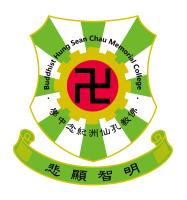| Language Policy |
In S.1 to S.3, we conduct Extended Learning Activities in English for some non-language subjects. In addition, various English activities, such as English drama and English Days, are organized as extra-curricular activities. Besides, S.2 and S.3 Mathematics are taught in English in some classes according to the ability of students. In senior forms, either medium of instruction are adopted according to the ability of students and nature of subjects. We organize various bridging courses to help pre-S.4 students adapt to the change in medium of instruction (English). |
| Learning and Teaching Strategies |
Our school aims to enhance students' learning effectiveness, creativity and interest. Junior classes are streamed according to students' abilities. We deploy different teaching strategies to cater for learners’ diversity.<br>1. Junior form students are streamed according to their language proficiency.<br>2. The Annual School Activity Day is held with the aim to broaden students’ exposure to the world.<br>3. Subject-based project learning is conducted in each form and large-scale project learning activities are organized for S.1 and S.2 students.<br>4. Our School library takes an active role in the promotion of reading. It commits itself to the launching of the Lunch Reading Programme and supports the implementation of reading tasks for all subjects. |
| School-based curriculum |
1. Electives: 2X and 3X. S.4 to S.6 students are able to take 2 or 3 elective subjects. Furthermore, we provide diversity learning programs for S.4 and S.5 students, for example, value education and Chinese cultural education, etc.<br> 2. Curriculum highlights: Reading, writing and speaking are the emphases of the junior form curriculum. Curriculum reform is also carried out in Junior Mathematics and Junior Science. Besides, we introduce art appreciation lessons in all senior forms and Buddhist Studies lessons in all forms.<br> |
| Approach to Catering for Learner Diversity |
We organise centralised tutorial classes including supervised homework periods, Junior Forms English Enhancement Course, Junior Forms Mathematics Enrichment Program, speech therapy and logical thinking training for students whose academic performance is relatively weak. Moreover, subject teachers adjust their schedule and teaching methods according to discussions in subject, form and class meetings. We also put additional resources into catering for students with special education needs. Besides, we have Double Class Teacher Collaborative System from S.1 to S.3 in order to help teachers cater for the needs of all students. |
| Approach to Integrated Education |
Our school adopts a whole school approach to promote integrated education. We have established the Student Support Team with members from different committees, specialists including a SENCO, a SENST, an education psychologist and social workers to work together to cater for the needs of all students. We also arrange and encourage teaching staff to study courses related to Integrated Education.<br>We have flexibility in spending the Learning Support Grant and other school resources to cater to the needs of students, including speech therapy service and individual as well as group training. We enhance students learning efficiency through diversified teaching strategies, tiered assignments and examination accommodation. All staff in our school acknowledge their responsibility establishing an inclusive environment and collaborate with specialists and parents to cater for the needs of students including having Individualized Education Programs, parents’ meetings as well as case meetings. |
| Education Support for Non-Chinese Speaking (NCS) Students |
|
| Home-School Co-operation |
Our Parent-Teacher Association organises different activities every year to promote the relationship among parents, students and teachers. |
| School Ethos |
It is our mission to help each student develop a strong sense of responsibility and a positive attitude towards life. All subjects and committees are fully committed to this goal. |
| School Development Plan |
Our school aims to arouse students' interest in learning, and enhance their language proficiency. Students are encouraged to participate in various programmes and learning activities run by different school committees and subjects. In the future, our school will continue to plan the school curriculum in accordance to the fine-tuning of the medium of instruction for secondary schools. This year, our major concerns are:<br>I. 【Able to develop abilities and persist in the field of knowledge】<br> (1) Good at learning with consolidating the foundation.<br> (2) Willing to learn with widening horizons.<br> (3) Motivated to learn with improving skills.<br>II. 【Guiding by will, accumulating virtues, and practising Buddhist values.】<br> (1) Self-cultivation for consciousness.<br> (2) Long-cherished wishes for altruism.<br> (3) Right view aesthesis on Dependence Origination. |
| Teacher Professional Training and Development |
In addition to the three staff development days each year, staffs are encouraged to attend seminars and courses to further their professional development. The average training hours of our teaching staff was more than the required standard by the EDB in the last academic year. |
| Life-wide Learning |
Extra-curricular activities include A Cappella Team, Brass Band, Choir, Chinese Dance Team, Creative Art Team, Drama Team, Debate Team, Flying Racing Club, English Club, Chinese Culture Club, Society of HK History, Intelligent Training Club, Innovation Team, Books and Beyond, Mindfulness Art Club, Creative Lego, First Aid for Life, Boy Scout, Community Youth Club, Girl Guide, Junior Police Call, Red Cross Cadet Unit, Athletic Team, Badminton Team (Boys and Girls), Basketball Team, Table Tennis Team, Volleyball Team, Audio Visual Aids Team, Career Pioneer Team, and Voluntary Services Team. Co-curricular activities include school activity days etc. |
